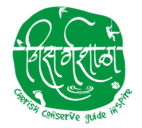Stargazing : Lunar Libration Showcase – Lunar Wonders and Spring Deep Sky Near Pune
Stargazing : Lunar Libration Showcase – Lunar Wonders and Spring Deep Sky Near Pune
Camp Date : March 28, 2026 - March 29, 2026
Overview
Overview
Join us for the unique Lunar Libration Showcase, an overnight stargazing camp designed to explore the fascinating and often unseen lunar limb regions revealed by libration effects. This event coincides with the First Quarter Moon on March 28–29, 2026, offering ideal shadows and lighting conditions for detailed lunar surface observations, combined with the beauty of spring constellations and deep sky objects.
Event Details
📅 Date: Saturday, Mar 28 – Sunday, Mar 29, 2026
🌙 Moon Phase: First Quarter Moon, excellent for lunar limb and terminator viewing
⏰ Check-in: Saturday 6:00 PM
⏰ Check-out: Sunday 10:00 AM
📍 Location: Secluded dark sky location near Pune, ~90 minutes drive from city centers
What to Expect
Lunar Highlights
View the eastern limb features of the Moon brought into view by lunar libration, revealing regions usually hidden from direct sight.
Explore Mare Crisium, a large lunar mare with smooth basalt plains and mysterious rilles.
Observe the dynamic terminator line, the day-night boundary casting deep shadows that accentuate surface features like craters, mountains, and valleys.
Spring Constellations and Deep Sky
Spot prominent spring constellations: Virgo, Leo, Boötes, and Corona Borealis.
Observe rich globular clusters such as M13 (Hercules Cluster) and nearby galaxies within the Virgo Cluster.
Viewing Highlights
Unaided Eyes
Major stars of spring constellations—Regulus (Leo), Spica (Virgo), Arcturus (Boötes).
Lie back to enjoy wide star fields and occasional bright stars.
Binoculars
Locate M13, one of the brightest globular clusters in the northern sky.
Scan star clouds in Virgo and Corona Borealis.
Telescopes (10″ and 12″)
Detailed lunar limb with unique craters and features exposed by libration.
Mare Crisium’s plains and rilles with sharp contrast during First Quarter lighting.
M13 Hercules Cluster with individual stars resolving beautifully.
Several galaxies within Virgo Cluster for deep-sky exploration.
Program Outline
Welcome and brief introduction to lunar libration and its impact on lunar observation.
Guided telescopic lunar exploration focusing on eastern lunar limb details.
Overview of spring constellations and their deep sky treasures.
Hands-on telescope time for both lunar and deep sky observing.
Astrophotography tips for capturing lunar features and star clusters.
Open Q&A session with expert astronomers.
Equipment Provided
High-quality Dobsonian telescopes (10″, 12″) optimized for lunar and deep sky viewing.
Lunar filters to enhance surface detail and reduce glare.
Binoculars for wider sky viewing.
Star charts and lunar atlases for identification.
Who Should Attend
Astronomy enthusiasts interested in unique lunar phenomena.
Photographers looking to capture detailed lunar limb imagery.
Families and students eager to learn about lunar geography and spring night sky.
Anyone fascinated by the Moon’s changing face and distant galaxies.
Preparation Tips
Dress warmly, as lunar observing often requires steady viewing over extended periods.
Bring reclining chairs or mats for comfortable viewing.
Camera gear recommended for astrophotography.
Arrive with an open mind to explore the lunar surface like never before!
